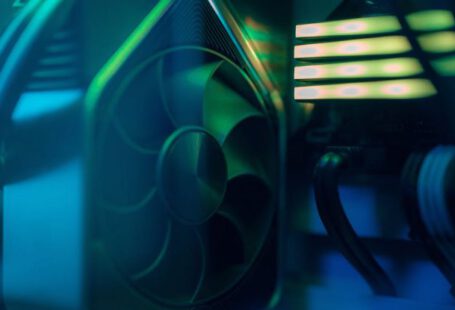In today’s fast-paced digital world, where efficiency and speed are key, the performance of our hardware plays a crucial role in ensuring smooth operations. From sluggish computers to unresponsive devices, hardware issues can significantly impact productivity and user experience. However, one effective way to address these problems is through troubleshooting. But can troubleshooting hardware actually boost overall performance? Let’s delve deeper into this topic to understand the impact it can have on our devices and systems.
Identifying and Resolving Hardware Issues
Hardware troubleshooting involves the process of identifying and resolving technical problems related to physical components of a system or device. These issues can range from malfunctioning components such as faulty RAM or hard drives to connectivity problems with peripherals like printers or monitors. By systematically diagnosing and addressing these issues, users can potentially enhance the performance and functionality of their hardware.
Enhancing System Stability
One of the key benefits of troubleshooting hardware is the potential to enhance system stability. Unresolved hardware issues can lead to system crashes, freezes, and other disruptions that can hinder productivity and impact user experience. By identifying and resolving these issues promptly, users can create a more stable computing environment that is less prone to unexpected failures or malfunctions.
Improving Speed and Responsiveness
Hardware issues such as overheating, insufficient memory, or outdated drivers can significantly impact the speed and responsiveness of a system. Troubleshooting these issues can help optimize hardware performance, resulting in faster boot times, smoother multitasking, and improved overall responsiveness. By addressing issues such as slow performance or lagging applications, users can enjoy a more efficient computing experience.
Optimizing Resource Allocation
Effective hardware troubleshooting can help optimize resource allocation within a system, ensuring that hardware components are utilized efficiently. By identifying and resolving issues such as resource conflicts or insufficient system resources, users can prevent bottlenecks that can impede performance. This optimization can lead to better utilization of hardware resources, ultimately enhancing overall system performance.
Preventing Data Loss and System Damage
Hardware issues such as failing hard drives or power supply units can pose a significant risk of data loss and system damage. By proactively troubleshooting hardware problems, users can identify potential issues before they escalate into serious problems. This proactive approach can help prevent data loss, system crashes, and hardware failures, ultimately safeguarding valuable data and prolonging the lifespan of hardware components.
Enhancing User Experience
At the core of hardware performance is the user experience. A system that operates smoothly, responds quickly, and remains stable contributes to a positive user experience. By troubleshooting hardware issues, users can ensure that their devices and systems function optimally, providing a seamless and efficient computing experience. Whether for work or leisure, a well-maintained hardware system can enhance productivity and satisfaction for users.
In Conclusion: The Benefits of Hardware Troubleshooting
In conclusion, troubleshooting hardware can have a significant impact on overall performance by addressing issues that can hinder system stability, speed, and efficiency. By identifying and resolving hardware problems promptly, users can optimize resource allocation, prevent data loss, and enhance the user experience. Whether it’s improving system stability, enhancing speed and responsiveness, or safeguarding against potential damage, hardware troubleshooting plays a vital role in maximizing the performance of our devices and systems. So, next time you encounter hardware issues, consider the benefits that troubleshooting can offer in boosting overall performance.




